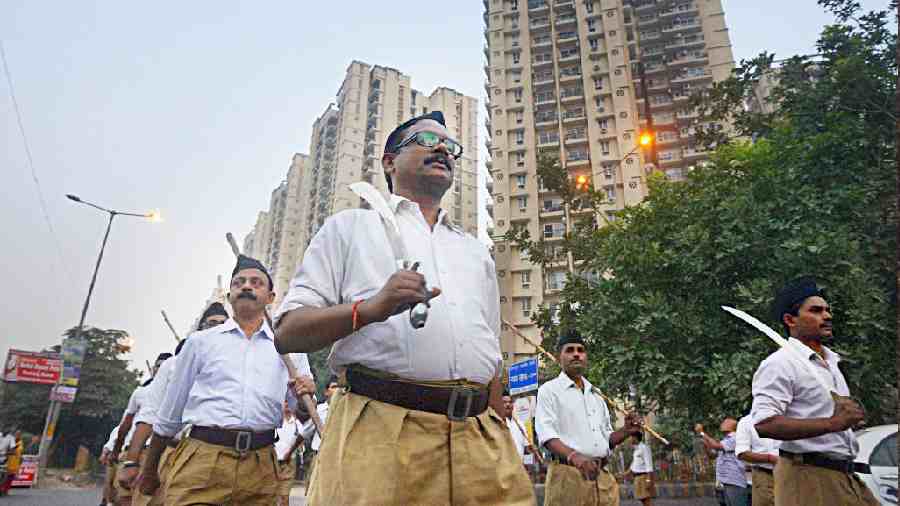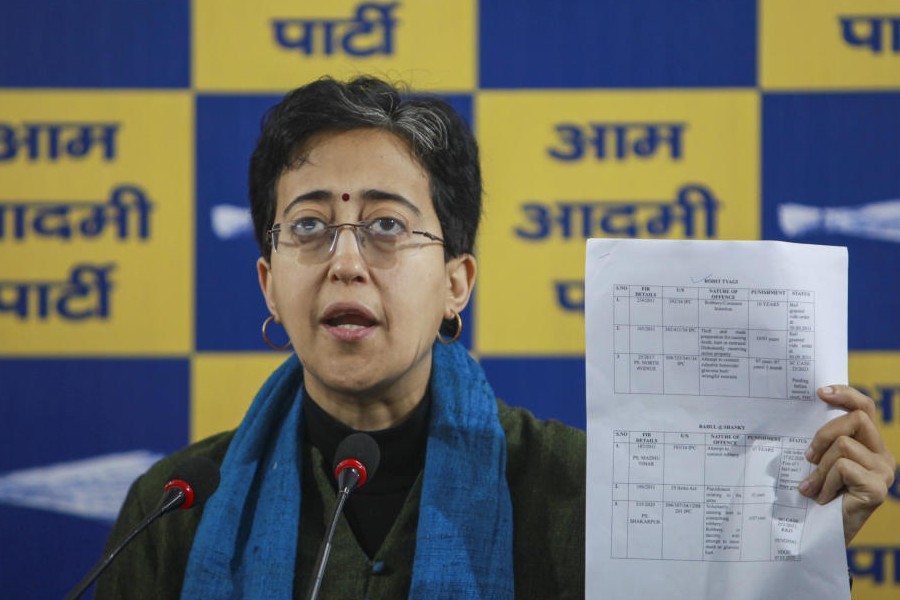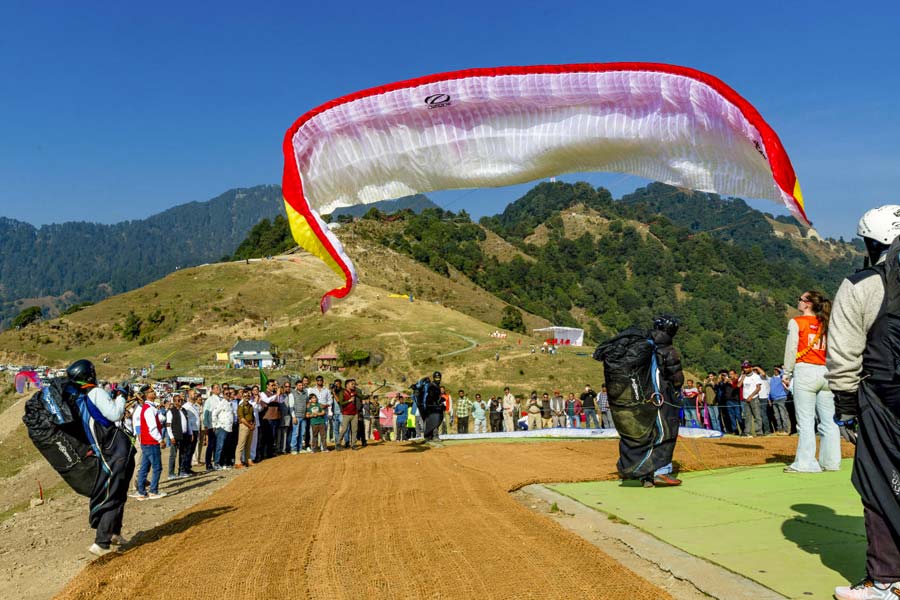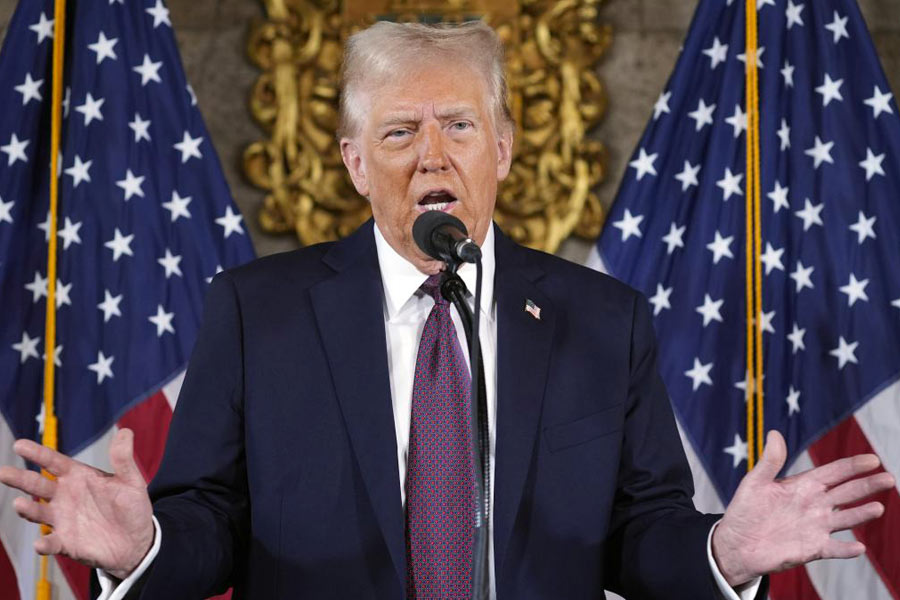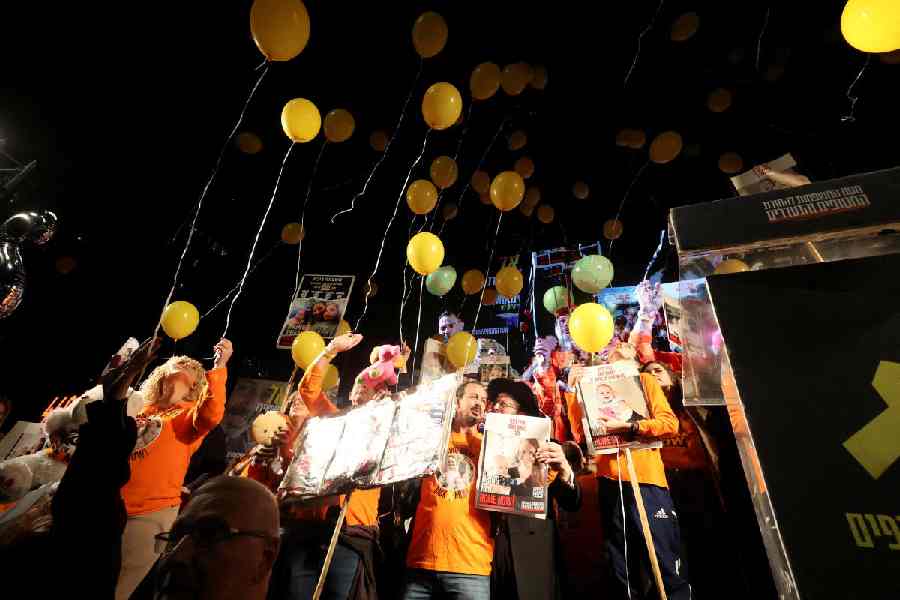“Sailing to Byzantium”, one of W.B. Yeats’ timeless poems, opens with the striking line, “That is no country for old men.” “That is no country for old men. The young/ In one another’s arms, birds in the trees,/—Those dying generations — at their song,/ The salmon-falls, the mackerel-crowded seas,/ Fish, flesh, or fowl, commend all summer long/ Whatever is begotten, born, and dies.”
In 2023, this poem returns to my thoughts with a terrifying frequency. Born in 1950, the year in which we adopted the Constitution, became a republic, and looked forward to ending centuries of feudal order having vanquished colonial rule, that was the time when the Idea of India was basking in the promise of many freedoms for everyone, no matter what one’s religion, caste, gender, class and location were. The promise had come not without bloodshed, mindless violence and great human tragedy. Yet, freedom, indeed, had arrived for all — I repeat — regardless of creed, caste and language. The Constitution had taken birth for all of us, like a large banyan tree on which millions could perch, nest and feel a longing for, and a sense of belonging to, it. Yet, history moves ceaselessly, change being its forever-law. The colours of the dreams we had seen kept becoming lighter, the texture of one’s hopes kept getting frayed. Occasionally, as during the Emergency, we wondered whether we would ever again return to the normal. But we did, and appeared to have vowed never to allow the darkness of unfreedom fall on the Constitution. The conflicts with our neighbours were the moments which we crossed with fortitude and without forgetting that the enemy across the firing line is human and not a monster. India, since Independence, had a population that was mostly illiterate, belonging to a modest economic class, labouring to earn barely enough for survival, forever worried about shortages. And, yet, it was that India which knew precisely how to preserve democracy, how to lose a day’s wage for getting to the polling booth, how to express itself with firmness through its most precious possession — the ballot box.
The India of 2023 is different. I am not an analyst, historian, political scientist, or the member of a think-tank to be able to say with precision what the difference is. As one of those millions of Indians who lived in India in 1950, I can only comment on what little I have seen and known well. During the 1950s, I was in a small town, maybe with a population size of 3,000 or so. The roads had no tar coating on them. The primary school which I attended had seven classes and four teachers. The prince who ruled before Independence had provided drinking water to all houses and a dam had been built by the British for power generation. The ruler had also created some small but beautiful structures built in hewn stone. These included a high school, a public library and a town-council hall. The housing was of mixed communities. My immediate neighbours were Muslims. The family head posted as mamlatdar (the taluka’s head officer) had rented it. Beyond his house lived a Brahmin scholar who had worked for a while with All India Radio at Pune. Next to him were two young doctor brothers — they had converted to Christianity not too long ago. On the other side of my house was a silversmith family, a lawyer from yet another community. These memories are so clearly etched on my mind that I can go on drawing the social picture endlessly. Children of these families used to move through all these houses without being made self-conscious of their sect or class. Elders used to assemble on streets or in courtyards and exchange their small-time joys or worries freely with one another. Festival times for one family were treated as festivals for all; weddings in one family became shared occasions for all. The hill-surrounded town had a stunning landscape. It belonged to all, all belonged to it.
I spent the first ten years of my life in that town as a young child. It is not as if the town was cut off from the rest of the world. Great events of the world did affect it. I have heard from elders in the family that when the radio announced that Mahatma Gandhi had been assassinated, people became wordless and stopped cooking food. Some people had assembled and attacked and burnt the houses of Brahmins. I had heard that many non-Brahmins came forward to give them shelter. I recall that when B.R. Ambedkar passed away, a mourning procession (shoka yatra) was taken out and many had cried. When the first man-made satellite was sent to the moon, teachers and school students in our town had organised a skywatch, hoping to spot the celestial event. Once Jawaharlal Nehru went past the town and people thronged to see him. There were a few small industries in the town. But their rich owners were not hated, nor did they speak with scorn to the poor. Children from those families and the children from the not-sorich ones went to the same school, the same cricket ground, and the same public library. All this was in the early years after India’s Independence. Later, life took me away from it to many other towns, cities, states and countries.
Last week, I was able to visit the town after a long gap of sixty years. The town has grown in size; yet it can still be called a small town, with a population of about 70,000. A few colleges have come up, a few new industries have been set up, and roads are now made in concrete. Yet, some of the families that lived sixty years ago continue to live there, though not the same persons but their second or third generation. On learning that I was to visit the town, the residents decided to organise a public welcome and a felicitation ceremony for me. It was well-attended. As was natural for me, I spoke to them about how the town used to be in the 1950s, reminding them that despite being a small town, it reflected the spirit of independent India of the 1950s. I narrated what the people had felt about Nehru and how they admired him. One saffron-clad man walked out of the meeting when I said a gentle word about Nehru. In a few minutes, 30 men, all clad in the uniform of the Rashtriya Swayamsevak Sangh, were brought to march outside the venue of the meeting. All of them had lathis in their hands and warlike slogans in their mouths. As I was looking at the somewhat ludicrous show of strength, the saffron-clad man returned, stood before me, his eyes almost falling out of their sockets because of uncontrolled anger. “Nehru?” he said in utmost contempt, “mind you”. Then he stomped off. I suddenly remembered this was the India of 2023. I should have known that words, particularly those that expose inconvenient truths, get expunged fast these days, whether uttered in a small town or in Parliament. In India-2023, we are all equal in facing scorn, intimidation and the arrogance of those who think that history can be brought to a grinding halt with no before and no after. Therefore, let me bring to you, what Yeats called, “Of what is past, or passing, or to come”.
G.N. Devy is Chair, The People’s Linguistic Survey of India

